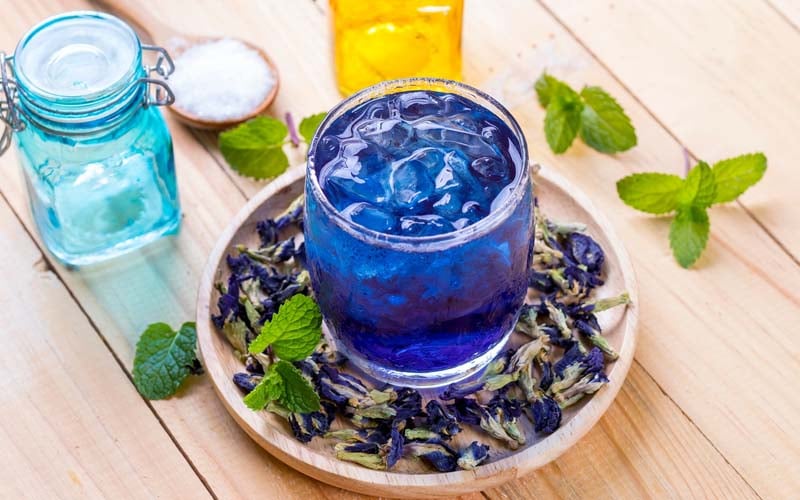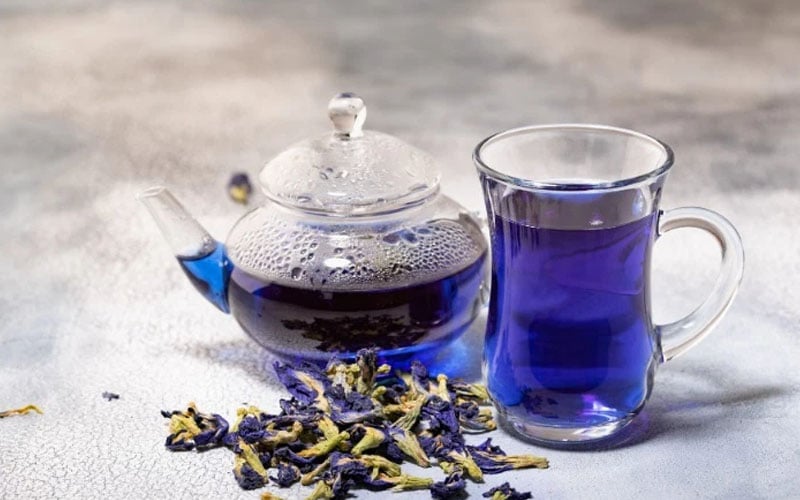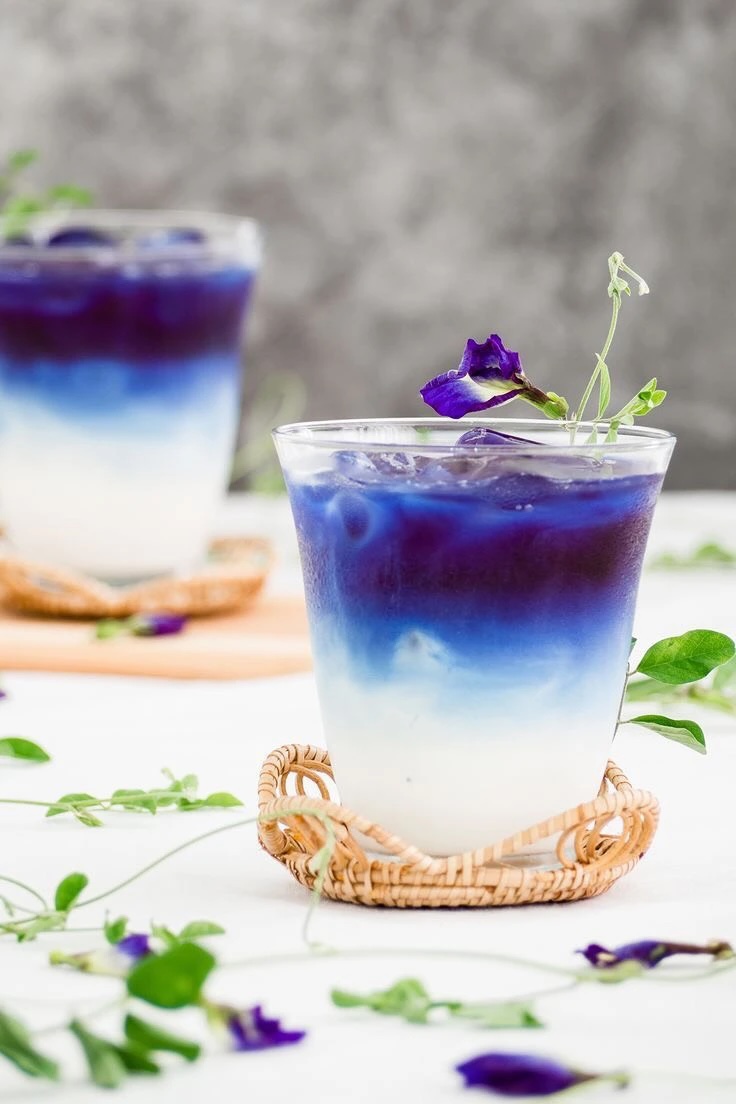Butterfly pea flower, with its vibrant bluish-purple hue, is a perennial vine or herbaceous plant. In Vietnam, it is commonly used to add color to food, beverages, and pastries. In traditional medicine, it is believed to possess diaphoretic, diuretic, and detoxifying properties, while being beneficial for the skin.
Butterfly pea flower tea, when consumed regularly, can provide several health benefits. The blue color of the tea comes from anthocyanin, a type of antioxidant that is also found in many blue and purple fruits and vegetables. This tea is caffeine-free, making it suitable for afternoon or evening consumption without affecting sleep, although it is best avoided on an empty stomach.
Supports blood pressure control and cholesterol reduction
Studies have shown that extracts from this flower may help lower blood pressure by relaxing blood vessels, improving blood flow, and preventing clot formation, thus reducing the risk of stroke. Additionally, the high antioxidant content of butterfly pea flower tea may offer protection against cardiovascular diseases, diabetes, and certain types of cancer.

Extracts from butterfly pea flower may help lower blood pressure
Blood sugar control
Anthocyanin in butterfly pea flower tea plays a role in regulating blood glucose levels by inhibiting carbohydrate-digesting enzymes, slowing down digestion, and improving glucose uptake into the bloodstream. This results in reduced blood sugar and insulin levels after meals.
Small studies in healthy adults have suggested that extracts from butterfly pea flower can reduce blood glucose levels within 30 minutes after eating. Individuals with diabetes should consult with a healthcare professional before consuming this tea to avoid any adverse interactions. A safe recommended dosage is 5 to 10 flowers per day, which corresponds to 1 to 2 grams of dried flowers or 1 to 2 cups of tea.
Enhances brain health
Research suggests that regular consumption of butterfly pea flower extracts may increase acetylcholine levels in the brain, an essential neurotransmitter for cognitive functions. Acetylcholine plays a crucial role in slowing down age-related cognitive decline and enhancing memory.

Studies suggest that regular consumption of butterfly pea flower extracts may increase acetylcholine levels in the brain
Improves skin health and anti-aging
Butterfly pea flower is rich in antioxidants that delay skin aging, promote collagen production, prevent premature aging, and hydrate and enhance skin elasticity.
Antibacterial and immune-boosting
Butterfly pea flower is known for its anti-inflammatory properties that help protect against bacteria and viruses that cause infections. Studies have indicated that butterfly pea flower tea may support the digestive tract and maintain a healthy digestive system, which is closely linked to improved immunity and protection against symptoms such as stomach cramps, nausea, and bloating.
Butterfly pea flower infusion also helps cleanse the body, detoxify the liver, and eliminate toxic waste products, while acting as a mild laxative and natural diuretic. Butterfly pea flower tea is also known to reduce respiratory tract inflammation, relieving cold and cough symptoms.

Butterfly pea flower is known for its anti-inflammatory properties
Precautions when consuming butterfly pea flower tea
Butterfly pea flower tea is generally considered a safe beverage choice, however, individuals with low blood pressure or low blood sugar should exercise caution to avoid symptoms such as dizziness or lightheadedness. Pregnant or menstruating women, as well as those taking blood-thinning medications, should avoid this tea. For those with preexisting medical conditions, seeking professional advice before incorporating butterfly pea flower tea into the daily diet is essential.
To make butterfly pea flower tea, the ideal water temperature is 167°F (75°C) and it is best consumed fresh after brewing to optimize nutrient intake. Consumers should also maintain a balanced diet, reduce refined sugar intake, and engage in regular physical activity to maintain healthy blood sugar levels.
Unlock 8 Benefits with a Daily 5-Minute Jog
Living a hectic lifestyle can make fitting in time to exercise difficult. However, studies have revealed that even just 5 minutes of jogging a day can lead to positive outcomes for your health, including a decrease in the risk of developing cardiovascular disease, extending your life span by up to 3 years, or even reducing the susceptibility to heart disease.



































